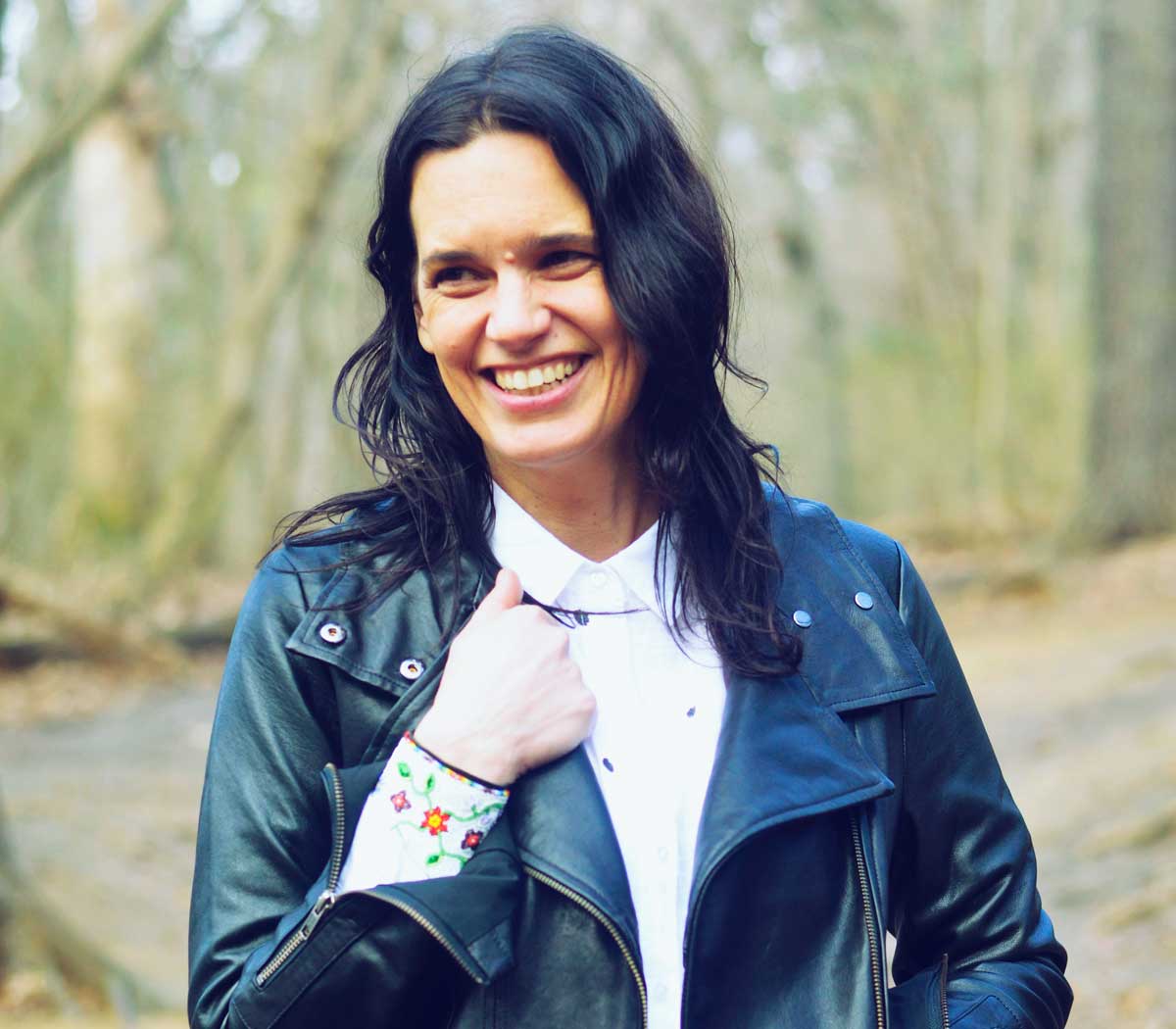Q & A with Leanne Betasamosake Simpson

Photo: Leanne Betasamosake Simpson received the inaugural RBC Taylor Emerging Writer Award in 2014. Photo: Zahra Siddiqui.
We talked to distinguished visiting professor Leanne Betasamosake Simpson, a Nogojiwanong (Peterborough)-based writer, musician and academic, about the long path to reconciliation.
How does your new book, This Accident of Being Lost [published this spring], build on your first, Islands of Decolonial Love?
The two books are similar in tone, style and aesthetics. Both were written for an Indigenous audience first, although not exclusively. There are characters from the first book that reappear in the second. My hope is that This Accident of Being Lost carries the fire and love of my first book into new spaces.
What is the underlying message of the stories you tell?
The spine of my practice is a love of land, culture, family and the intelligence of my Nishnaabeg ancestors. I use Nishnaabeg language and storytelling to create multi-layered works that simultaneously speak to Nishnaabeg and non-Native audiences. My works carry with them Indigenous recognition and visions of the resurgence of Indigenous nations.
What is the biggest challenge for universities regarding reconciliation?
The biggest challenge is to make their communities and institutions supportive, safe and nurturing for Indigenous students. Indigenous students tell me that universities in Ontario are places of struggle for them, particularly for two-spirit, queer and trans students.
Universities have historically been major players in replicating colonialism. Part of their work now is to be responsible about the damage that has caused and continues to cause, and to align themselves with those of us committed to regenerating Indigenous political systems, languages and intellectual systems.
How can Canadians support reconciliation, especially in this sesquicentennial year?
One simple thing Canadians can do is support Indigenous artists. We have incredible writers, musicians, visual artists, theatre, dance, filmmakers and photographers doing incredible work. Many events in Toronto present an alternative perspective on Canada 150 that centres on the experience of Indigenous and Black peoples, for example.
Every Canadian should learn about colonialism and how it structures Canada’s relationship with Indigenous peoples. Canadians need to support us in regenerating our political systems, languages and intellectual practices that have been so damaged by residential schools, dispossession and capitalism. Canadians need to stop thinking about colonialism as something that happened in the past, and think about how they are replicating colonialism, racism and heteropatriarchy. Canadians need to align themselves with the folks doing the hard work of building alternatives.
How will you help ‘Indigenize’ the curriculum at Ryerson?
I am interested in building a generation of Canadians who can think critically about colonialism and its contemporary impacts on Indigenous peoples, who are articulate about our history and have the skills to develop respectful relationships with Indigenous communities. I am interested in building a generation of Indigenous peoples who embody Indigenous intelligence and have the skills and knowledge to build a present and future based on Indigenous ethics, values and practices. Robust intellectual practices have sustained our nations for generations. There is a tremendous opportunity for universities to support our land-based education programs and learn from us.
This interview has been edited and condensed.
*
This is one in a series of stories about Canada 150 at Ryerson. As our nation marks the 150th anniversary of confederacy, Ryerson University is curating events, activities and stories that speak to the Canadian experience from vantage points as diverse as our people.
Related stories:
Celebrating Canada’s 150th with new Canadians